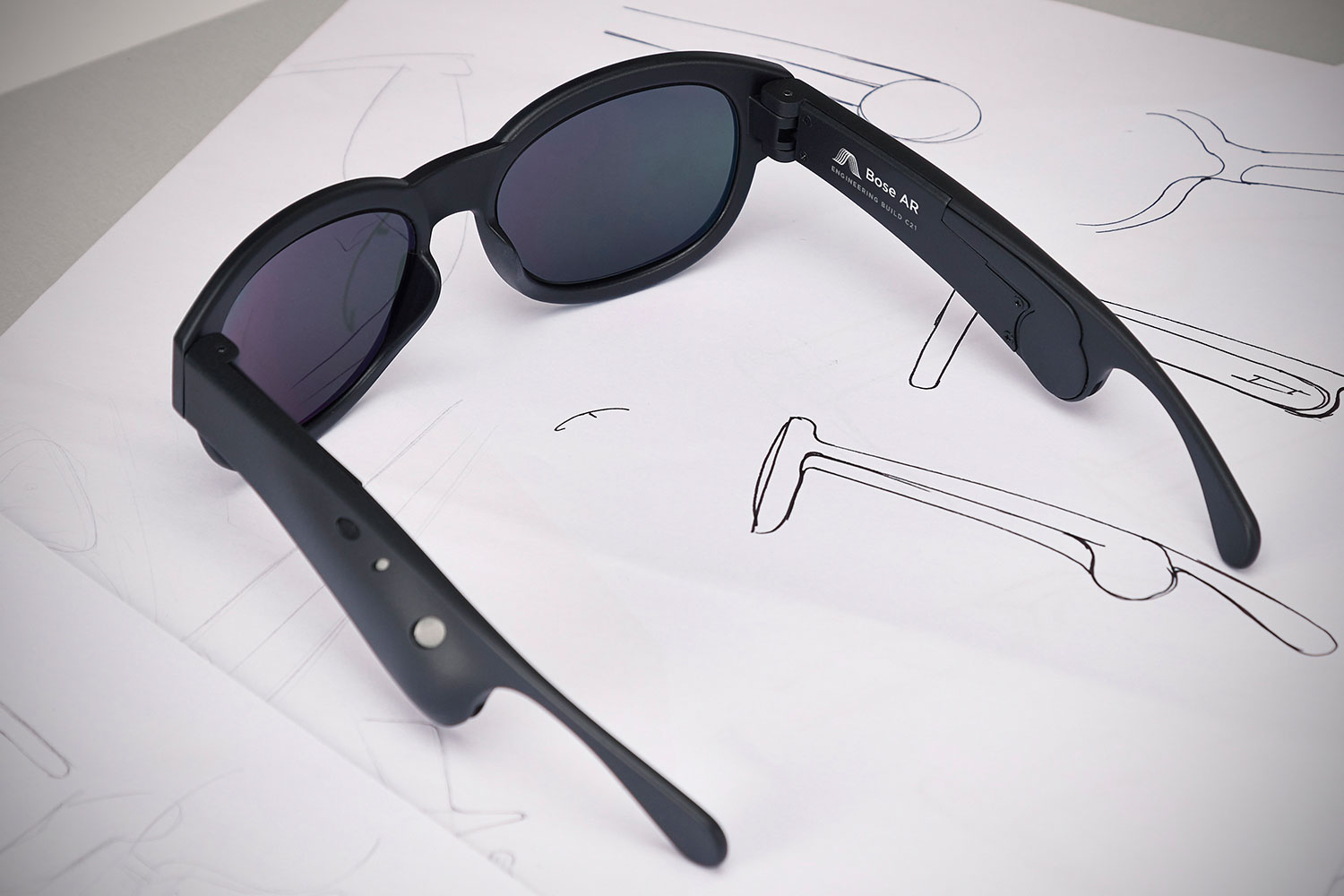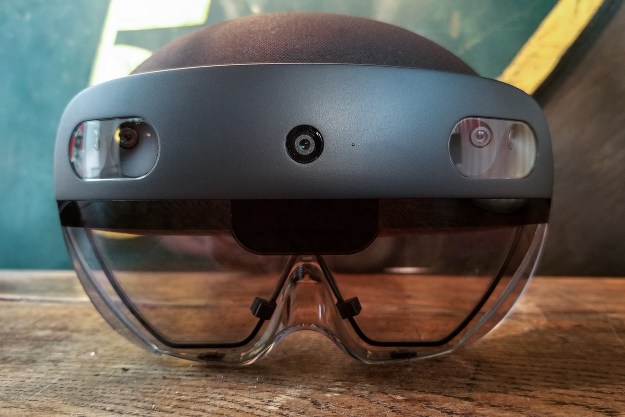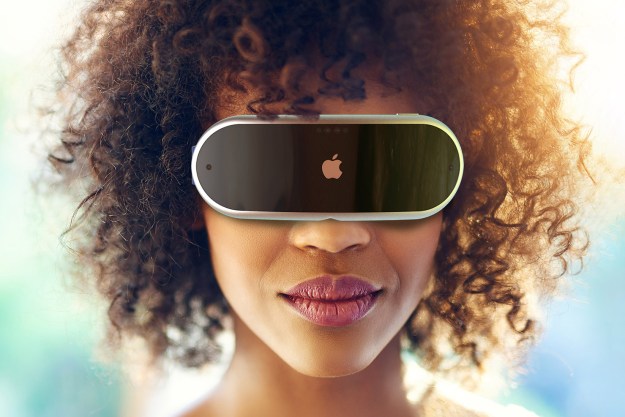
Bose is a company known for audio, from noise-canceling headphones to soundbars and subwoofers, so it may not be the first company you would imagine would be working on augmented reality glasses. That said, the idea makes a lot more sense than it might at first: These glasses don’t change what you see, but rather what you hear.
Like other AR glasses, these see what is going on around you, but instead of overlaying visual information on top of what you’re looking at, they play audio cues. Looking at the glasses, you may wonder where the sound comes from since there are no earbuds or headphones to pair with them, but Bose says it uses a minuscule acoustics package built into the frame of the glasses to produce sound.
“Bose AR represents a new kind of augmented reality — one that’s made for anyone and every day,” Bose Consumer Electronics Division Vice President John Gordon said in a statement. “It places audio in your surroundings, not digital images, so you can focus on the amazing world around you — rather than a tiny display. It knows which way you’re facing, and can instantly connect that place and time with endless possibilities for travel, learning, music and more. And it can be added to products and apps we already use and love, removing some of the big obstacles that have kept AR on the sidelines.”
When it comes to what the glasses can actually do, Bose came up with a number of potential uses. The glasses could translate road signs in a foreign language and read them aloud or explain the story behind a painting you’re viewing in a museum. The glasses can also register movement, so you could potentially change your music with gestures like nodding or shaking your head.
The prototype has Bluetooth built in, as well as a microphone, letting you use Siri or Google Assistant, or even use them for hands-free calls instead of a headset. This might seem strange at first, but could be useful in situations where you want to hear what is going on around you, like driving a car. Bose says it is using a proprietary technology that means nobody but you will be able to hear the sound coming from the glasses, so privacy may not be a concern.
Bose isn’t working alone on this project; it is collaborating with research institutes like the Massachusetts Institute of Technology Media Lab and the New York University Future Reality Lab, developers and manufacturers including ASICS Studio, Strava, TripAdvisor, TuneIn, and Yelp, as well as others with non-disclosure agreements that prevent them from being announced. These glasses are still just a prototype and Bose has said it is looking at other wearables like helmets and wearables, so it isn’t currently known when we will see products using the company’s new AR platform debut.
Who knows, these might even end up being AR glasses you wouldn’t be embarrassed to wear in public.
Editors' Recommendations
- Exclusive: Bose discontinues its Frames line of audio smart glasses
- Meta’s sleek AR glasses appear set for 2024 launch
- What will Apple call its VR headset? We might have an answer
- Apple’s new AR headset may use Face ID technology to track hand gestures
- Oppo may reveal AR Glasses and (maybe) a foldable phone at Inno Day 2021


